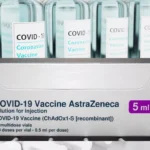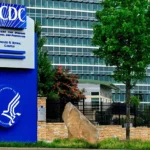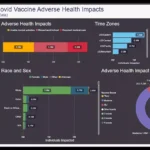AstraZeneca’s recent decision to withdraw its COVID-19 vaccine globally is officially attributed to “commercial reasons,” purportedly because the vaccine has been surpassed by newer options better equipped to handle emerging variants. However, this narrative is complicated by the timing of the withdrawal and a series of legal admissions revealing serious side effects associated with the vaccine.

The pharmaceutical giant has faced intense scrutiny after court documents revealed the vaccine could cause Thrombosis with Thrombocytopenia Syndrome (TTS), a rare but severe condition that includes blood clots and low platelet counts. These issues have not only raised health concerns but have also sparked a flood of legal challenges from affected individuals.
While AstraZeneca maintains that the withdrawal of its vaccine was a business-driven decision made in light of evolving market demands and the development of more effective vaccines, the sequence of events suggests otherwise.
The vaccine's phase-out follows closely on the heels of legal challenges and admissions in various courts that have significantly damaged public trust. The European Union's cessation of the vaccine's use and the subsequent withdrawal of marketing authorizations point to a growing reluctance within regulatory bodies to continue endorsing the vaccine under the cloud of such severe potential risks.
Legal and Public Repercussions
The legal repercussions for AstraZeneca are mounting as individuals and families affected by the vaccine's “rare” side effects come forward in greater numbers. More than 50 legal claims have been filed against the company, with plaintiffs seeking redress for harms they allege were not sufficiently disclosed by AstraZeneca before vaccination.
These cases often highlight the discrepancy between the company’s public assurances of safety and the later admissions in court regarding the true risk of severe side effects such as TTS. The lawsuits argue that AstraZeneca’s failure to adequately warn users constitutes a breach of consumer safety and trust, with legal implications that could result in significant financial liabilities for the company.
This wave of litigation is not just a legal problem for AstraZeneca but also a public relations crisis that could have long-lasting effects on its reputation and the public’s confidence in vaccines more broadly. The allegations suggest that AstraZeneca prioritized speed and market presence over transparency and safety, potentially at the cost of human lives.
The unfolding legal battles and the stories emerging from them paint a picture of a company caught between its responsibilities to shareholders and its ethical obligations to consumers. The outcomes of these cases could set precedents for how pharmaceutical companies can be held accountable for vaccine safety in the future, particularly in emergency responses to global health crises.
A Call for Accountability
The global withdrawal of AstraZeneca’s COVID-19 vaccine marks a significant chapter in the ongoing debate over vaccine safety and corporate accountability in public health. As the company faces these challenging times, the situation underscores the importance of transparency and stringent safety assessments in vaccine development and distribution. It also highlights the crucial role of regulatory bodies in safeguarding public health, particularly when balancing the urgent need for vaccines against potential risks.
Moving forward, AstraZeneca, and similar companies must navigate the delicate balance between innovation and safety, ensuring that both legal and ethical standards are met. The broader impact on vaccine confidence and the potential chilling effect on vaccine uptake are concerns that the pharmaceutical industry and health authorities must address collectively.
The AstraZeneca case may indeed prompt a reevaluation of regulatory frameworks and corporate practices around the world, aiming for a future where public trust in vaccines and other medical interventions can be assured.

Carl Riedel is an experienced writer and Open Source Intelligence (OSINT) specialist, known for insightful articles that illuminate underreported issues. Passionate about free speech, he expertly transforms public data into compelling narratives, influencing public discourse.













